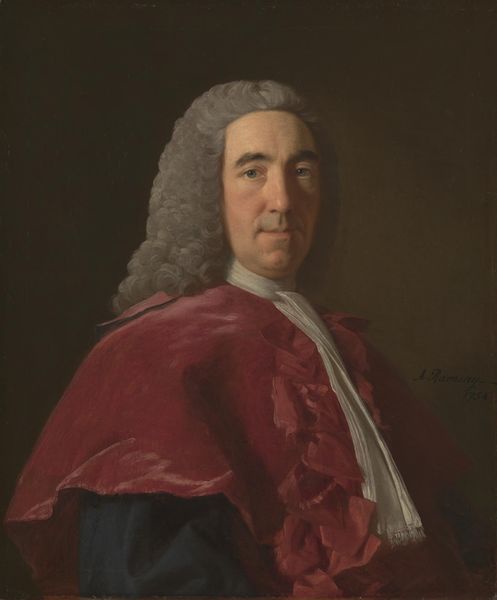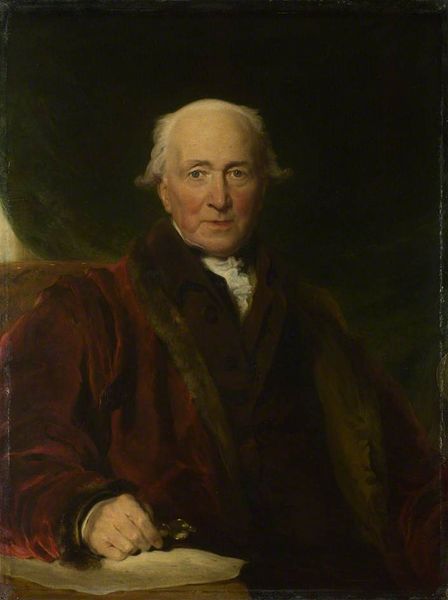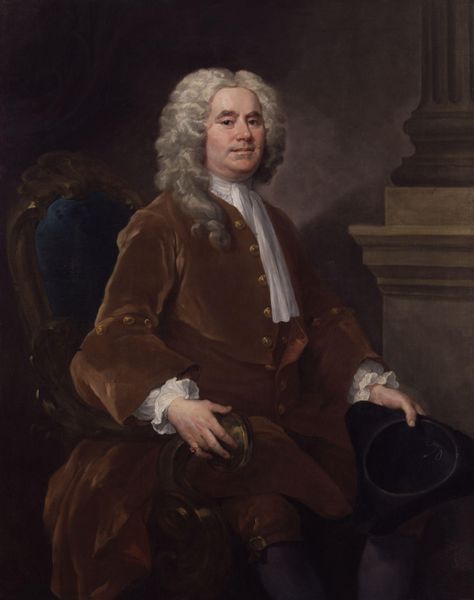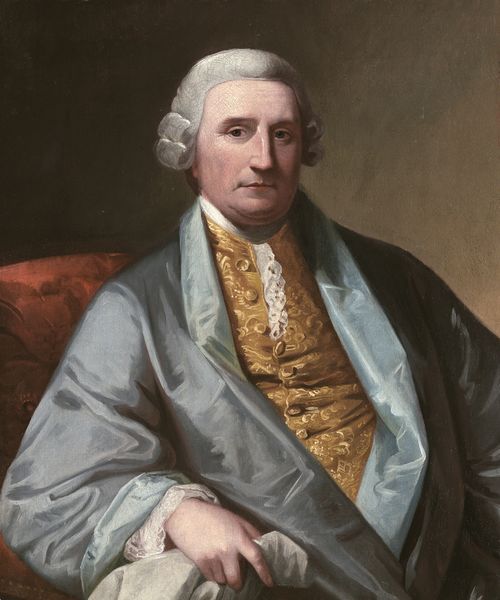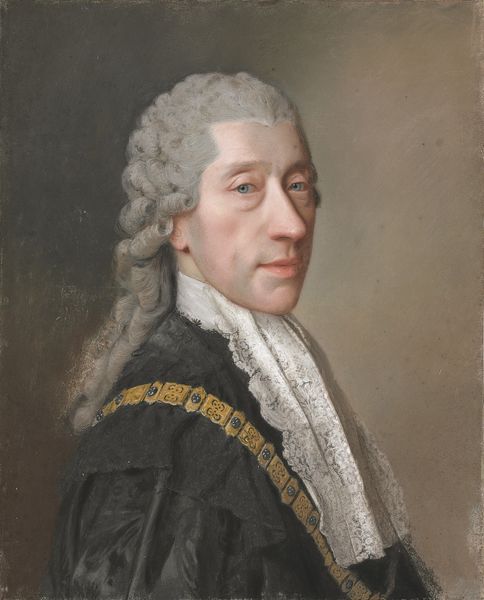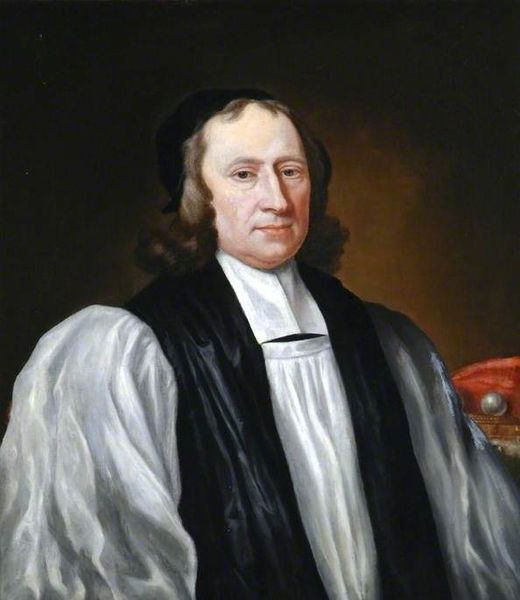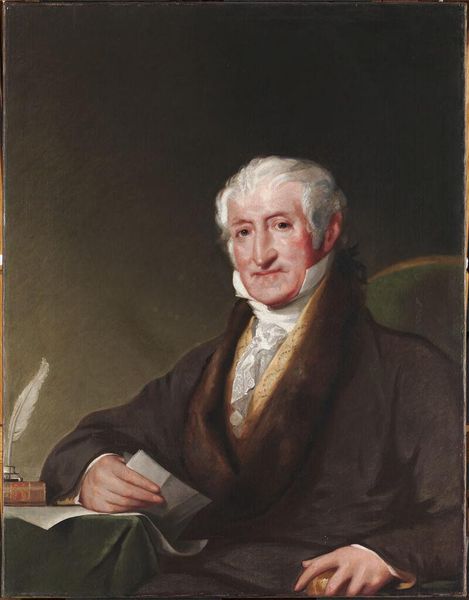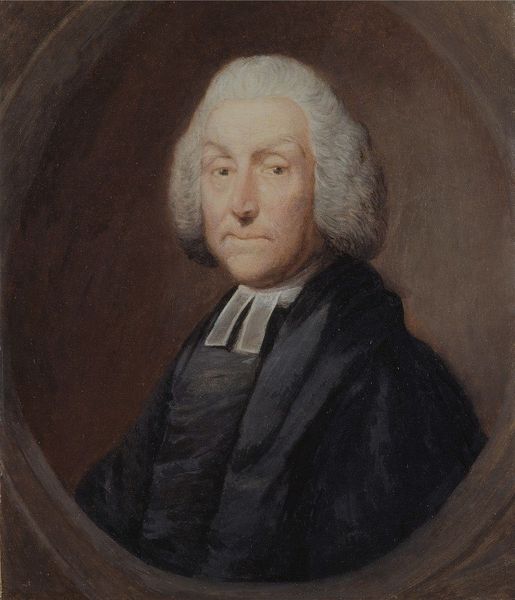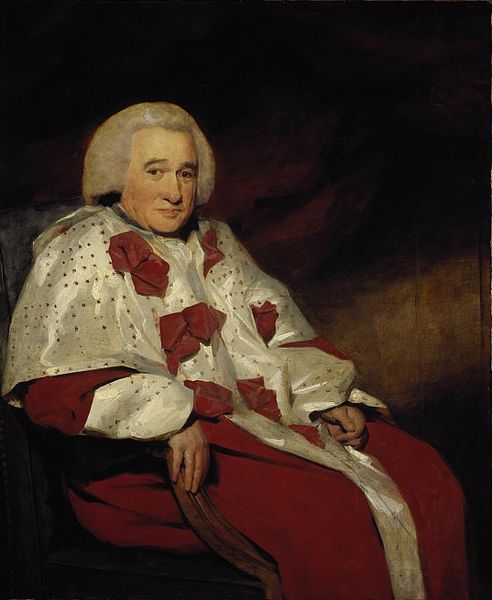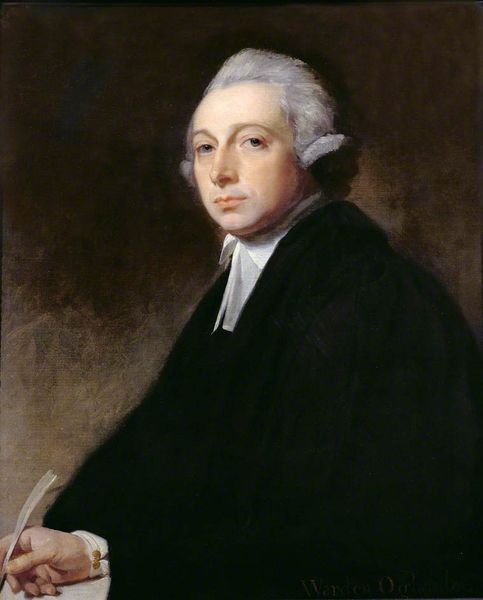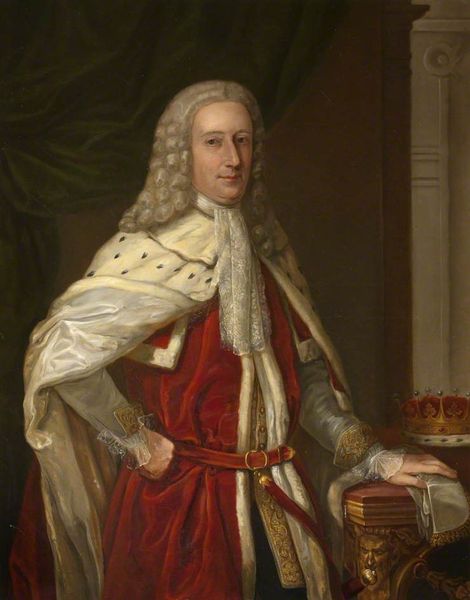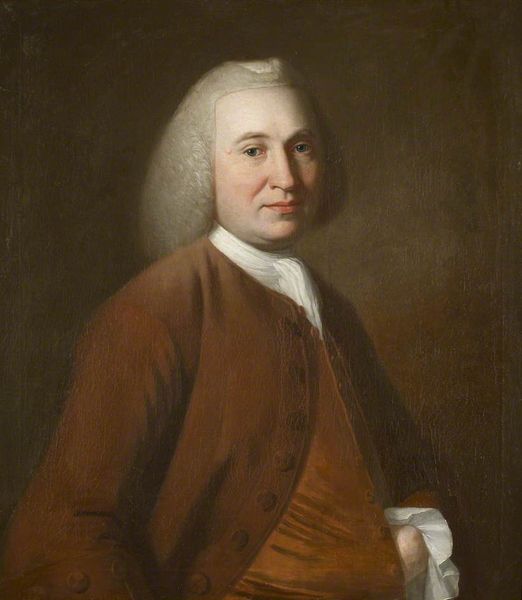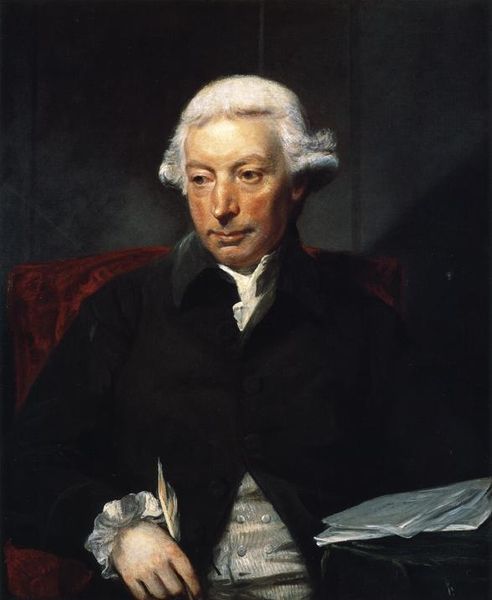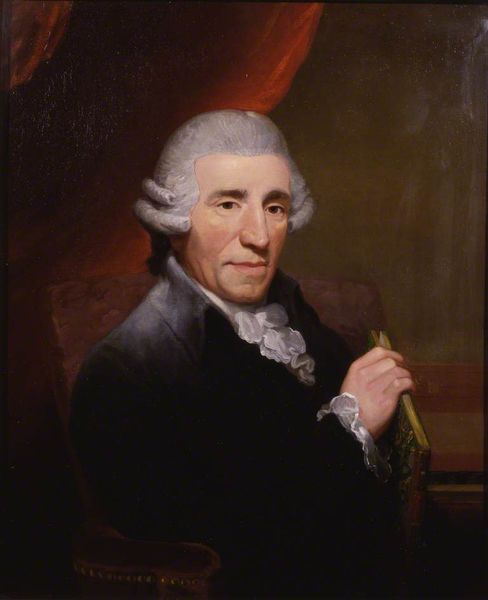
painting, oil-paint
#
portrait
#
baroque
#
the-ancients
#
portrait
#
painting
#
oil-paint
#
history-painting
Copyright: Public domain
Curator: Straightaway, there's a certain serenity to this piece. A sort of quiet grandeur... almost contemplative. Editor: I’m immediately drawn to the weight of it all. Not emotionally, but physically. Look at that dark fabric, and all the layering! You can almost feel the expense and labour behind its production. We're looking at “William Bissett, Bishop of Raphoe," painted by Thomas Lawrence. Curator: Indeed! Lawrence really captured something, didn’t he? There's such subtle vulnerability in Bissett’s gaze... He feels almost present, gazing out at us across the centuries. Editor: And that gaze, that 'presence', is carefully constructed. Consider all the material elements: the oils, the canvas, the pigments, and dyes in his garments. Somebody made the paint, someone wove that material; others stitched it, dyed it, designed it! It all screams privilege, doesn’t it? Curator: Perhaps. But Lawrence, as an artist, wasn't just showcasing finery, was he? He had a gift for showing the humanity of his sitters – their weariness, their wit, their flaws. See the slight flush on his cheeks; the shadows around his eyes! There’s more than just status on display, wouldn’t you agree? Editor: Well, all portraiture reflects its patron, even unintentionally. While the artist is wrestling with the medium, his client brings his own ideas and requirements that in some ways may be even more interesting to analyze. What does he expect this portrait to communicate, about him and to whom? Curator: So, even in his supposed ‘vulnerability,’ the Bishop's wearing social armor, as well! Fascinating… It reminds us how carefully identities were crafted and performed, especially back then. A subtle reminder of who held power – but also, I like to think, a little spark of shared humanity. Editor: Indeed! Every material detail in that portrait represents choices: from Bissett who acquired them, from Lawrence who rendered them with intent and then sold it onwards for coin. Now how is that labour evaluated today in the context of art, religion and power? It makes you wonder, doesn't it. Curator: Yes it does… What started as a face has, between the two of us, become a conversation! Editor: That’s the beauty of really seeing, isn’t it?
Comments
No comments
Be the first to comment and join the conversation on the ultimate creative platform.
